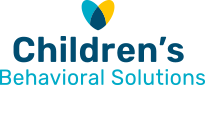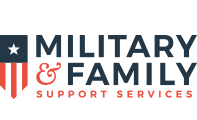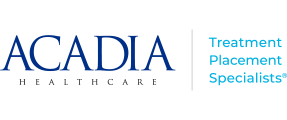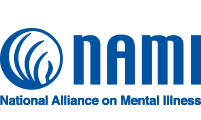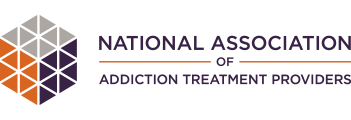Acadia Healthcare’s international network of treatment facilities provides multiple levels of care for individuals of all ages who struggle with addiction. Individuals of all backgrounds can receive comprehensive, personalized treatment for a range of substance use disorders at facilities throughout the Acadia network.
Understanding Addiction
Addiction can describe a wide range of dangerous and harmful behaviors involving both legal and illegal substances. Some of the most commonly used substances in the United States include alcohol, tobacco, marijuana, heroin, cocaine, methamphetamine, and even prescription medications. Depending on the specific substance an individual is using and how much and how often they are using that substance, individuals who struggle with addiction can be at risk of experiencing many harmful effects. Those might include significant physical and psychological damage and the development of a substance use disorder.
More commonly referred to as addiction, substance use disorders are characterized by a variety of unpleasant symptoms that include prioritizing substance use over relationships, career, and academic progress. Individuals who live with addiction might continue to use substances even after experiencing negative repercussions, and they sometimes experience painful withdrawal symptoms when attempting to stop or limit their substance use.
At Acadia Healthcare, we are familiar with the many ways that addiction can devastate the individuals living with these disorders and their families. Perhaps more importantly, we are also dedicated to developing innovative and effective services that can help people overcome their dependence upon alcohol and other drugs. At facilities throughout the Acadia Healthcare network, experienced and dedicated professionals provide the life-changing therapies and other clinical services that can help individuals emerge from the darkness of addiction, helping them take their first steps along the path toward a brighter, drug-free future.
Why Consider Treatment for Addiction
The effects of addiction can be devastating for individuals who do not receive effective care. A single experience with substance use might temporarily make it harder to perform basic tasks or make good decisions, but it can also cause irreversible damage, including death. As an individual continues to engage in a pattern of substance abuse, both the likelihood and the possible severity of these negative outcomes continues to increase.
The physical damage of addiction can include, but is not limited to, heart problems, breathing problems, vision trouble, liver and kidney damage, and an increased risk for certain cancers. The mental effects of addiction might include decreased ability to think clearly, anxiety, depression, paranoia, hallucinations, and delusions. An individual affected by addiction might be at an increased risk for academic failure, poor performance at work, and deteriorating interpersonal relationships. They might also struggle unemployment, financial setbacks, arrest and incarceration, homelessness, loss of important relationships, hopelessness, and suicide.
Countless people living with addiction have received effective professional treatment through the services provided within the Acadia Healthcare network. Substance use disorder is not a life sentence, and Acadia provides treatment for all types of addictions. The facilities in Acadia’s network help all populations heal from their substance use disorders by working in active collaboration with professionals who are committed to providing world-class care in a manner that is best suited to meeting their unique strengths, needs, and personal goals.
Each person who heals at an Acadia treatment facility can expect to receive the focused care that will not only eliminate the distressing symptoms of their substance use disorder, but that will address the underlying issues that may have contributed to or been worsened by their substance use and addiction. With a wide range of therapeutic interventions and treatment options provided at several levels of care, Acadia’s services are uniquely prepared to provide the intensely personalized treatment experience that prepares individuals not only for sobriety, but for the successful pursuit of a healthier, more productive, and more satisfying future.
Levels of Care Offered Through Acadia Healthcare
One of the many strengths of the Acadia Healthcare network is that our treatment facilities incorporate a variety of therapeutic techniques into several levels of care. As a result, individuals who enroll at an Acadia facility can expect to receive the type and level of care that is best suited to their specific strengths and needs. Depending upon these unique factors, a person’s time in treatment at an Acadia facility may include the following elements:
Detoxification services: Detoxification occurs in a safe and comfortable environment, where individuals can rid their bodies of addictive substance while under the care and supervision of experienced professionals.
Inpatient treatment: Inpatient treatment for addiction is an intensive, short-term experience that is designed to help individuals achieve the level of stabilization that will allow them to step down to a lower level of care or return home.
Residential treatment: Residential care for individuals who are struggling with substance use disorders includes round-the-clock supervision, a variety of customized therapeutic interventions, and significant psychoeducational support.
Partial hospitalization program (PHP): Group therapy is typically the main means of treatment at the PHP level. Individual and family therapy may be offered. Participants return home or to an alternative residence when the PHP is not in session.
Intensive outpatient program (IOP): IOPs offer considerable flexibility. Participants often have the option of attending treatment two to four days a week for two to three hours per session. Group therapy is the main method of care at the IOP level.
Medication-assisted treatment (MAT): MAT includes the use of certain prescription medications to alleviate cravings and other withdrawal symptoms, along with therapy to help adults achieve long-term recovery from opioid use disorder.
Traditional outpatient services: Many facilities within the Acadia Healthcare network offer traditional outpatient services, including individual, group, and family therapy, that may be scheduled according to the needs of the individual.
Each treatment facility in the Acadia Healthcare network provides a unique opportunity for individuals to receive superior personalized care in an atmosphere of dignity and respect. No two Acadia treatment facilities are identical, but all of our facilities are unified by our commitment to providing individualized treatment that is based on a thorough assessment to determine the strengths, needs, and treatment objectives of each person who chooses to heal with us. Through the Acadia network, people living with addiction can expect to work with experienced professionals who are dedicated to providing evidence-based, research-supported services that are designed to meet each individual’s specific needs.
Learn More
To learn more about treatment within the Acadia Healthcare network or to get answers to any specific questions that you may have about any individual program or service, please feel free to contact an Acadia Healthcare treatment facility near you. We look forward to providing you with the information you need to make the best decisions for yourself or for a loved one.
